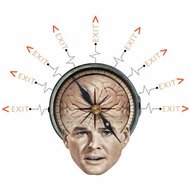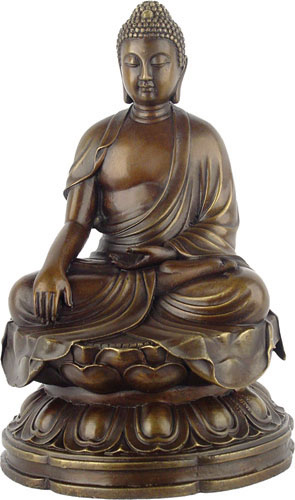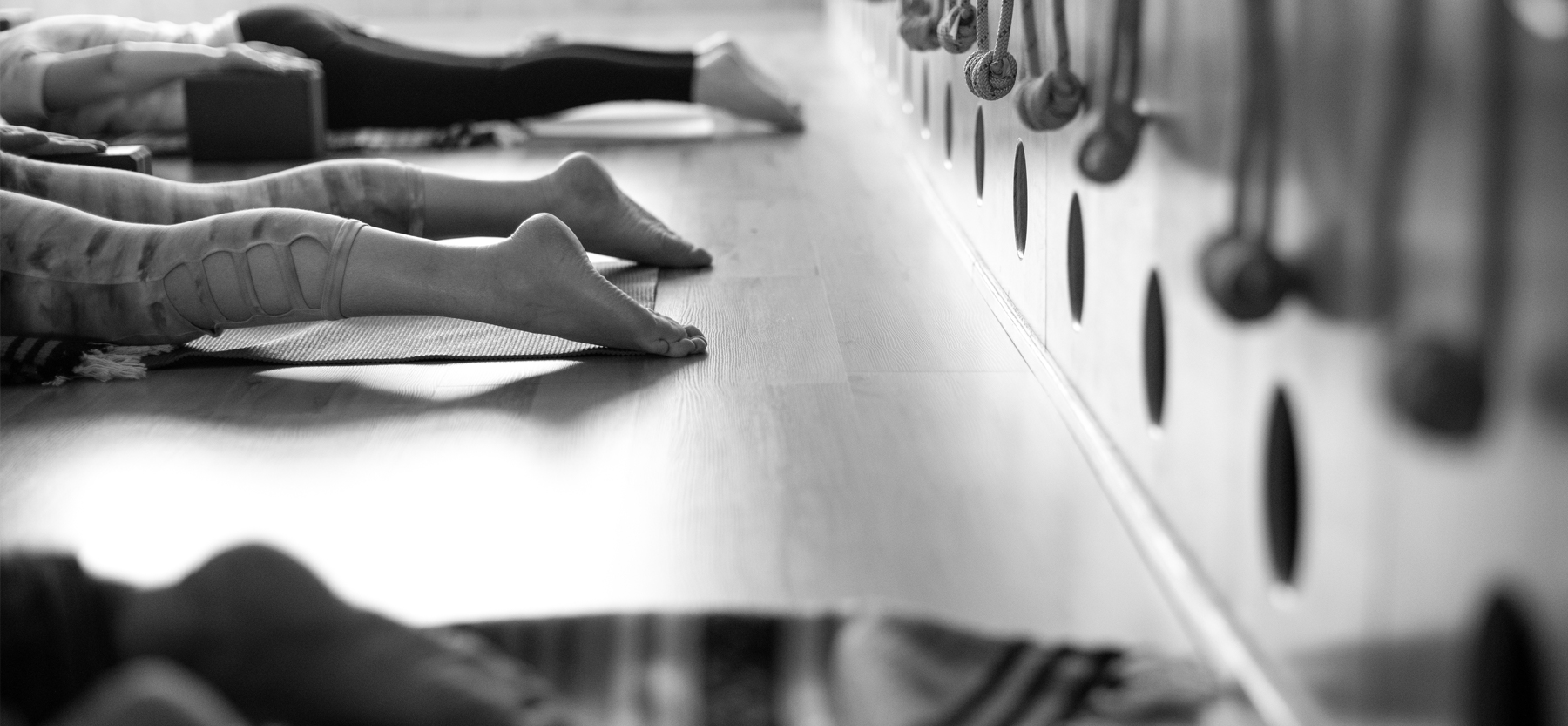Omaha Yoga Path Post
from the NY Times
When the Mind Wanders, Happiness Also Strays
By JOHN TIERNEY
Published: November 15, 2010 
A quick experiment. Before proceeding to the next paragraph, let your mind wander wherever it wants to go. Close your eyes for a few seconds, starting … now.
And now, welcome back for the hypothesis of our experiment: Wherever your mind went — the South Seas, your job, your lunch, your unpaid bills — that daydreaming is not likely to make you as happy as focusing intensely on the rest of this column will.
I’m not sure I believe this prediction, but I can assure you it is based on an enormous amount of daydreaming cataloged in the current issue of Science. Using an iPhone app called trackyourhappiness, psychologists at Harvard contacted people around the world at random intervals to ask how they were feeling, what they were doing and what they were thinking.
The least surprising finding, based on a quarter-million responses from more than 2,200 people, was that the happiest people in the world were the ones in the midst of enjoying sex. Or at least they were enjoying it until the iPhone interrupted.
The researchers are not sure how many of them stopped to pick up the phone and how many waited until afterward to respond. Nor, unfortunately, is there any way to gauge what thoughts — happy, unhappy, murderous — went through their partners’ minds when they tried to resume.
When asked to rate their feelings on a scale of 0 to 100, with 100 being “very good,” the people having sex gave an average rating of 90. That was a good 15 points higher than the next-best activity, exercising, which was followed closely by conversation, listening to music, taking a walk, eating, praying and meditating, cooking, shopping, taking care of one’s children and reading. Near the bottom of the list were personal grooming, commuting and working.
When asked their thoughts, the people in flagrante were models of concentration: only 10 percent of the time did their thoughts stray from their endeavors. But when people were doing anything else, their minds wandered at least 30 percent of the time, and as much as 65 percent of the time (recorded during moments of personal grooming, clearly a less than scintillating enterprise).
On average throughout all the quarter-million responses, minds were wandering 47 percent of the time. That figure surprised the researchers, Matthew Killingsworth and Daniel Gilbert.
“I find it kind of weird now to look down a crowded street and realize that half the people aren’t really there,” Dr. Gilbert says.
You might suppose that if people’s minds wander while they’re having fun, then those stray thoughts are liable to be about something pleasant — and that was indeed the case with those happy campers having sex. But for the other 99.5 percent of the people, there was no correlation between the joy of the activity and the pleasantness of their thoughts.
“Even if you’re doing something that’s really enjoyable,” Mr. Killingsworth says, “that doesn’t seem to protect against negative thoughts. The rate of mind-wandering is lower for more enjoyable activities, but when people wander they are just as likely to wander toward negative thoughts.”
Whatever people were doing, whether it was having sex or reading or shopping, they tended to be happier if they focused on the activity instead of thinking about something else. In fact, whether and where their minds wandered was a better predictor of happiness than what they were doing.
“If you ask people to imagine winning the lottery,” Dr. Gilbert says, “they typically talk about the things they would do — ‘I’d go to Italy, I’d buy a boat, I’d lay on the beach’ — and they rarely mention the things they would think. But our data suggest that the location of the body is much less important than the location of the mind, and that the former has surprisingly little influence on the latter. The heart goes where the head takes it, and neither cares much about the whereabouts of the feet.”
Still, even if people are less happy when their minds wander, which causes which? Could the mind-wandering be a consequence rather than a cause of unhappiness?
To investigate cause and effect, the Harvard psychologists compared each person’s moods and thoughts as the day went on. They found that if someone’s mind wandered at, say, 10 in the morning, then at 10:15 that person was likely to be less happy than at 10 , perhaps because of those stray thoughts. But if people were in a bad mood at 10, they weren’t more likely to be worrying or daydreaming at 10:15.
“We see evidence for mind-wandering causing unhappiness, but no evidence for unhappiness causing mind-wandering,” Mr. Killingsworth says.
This result may disappoint daydreamers, but it’s in keeping with the religious and philosophical admonitions to “Be Here Now,” as the yogi Ram Dass titled his 1971 book. The phrase later became the title of a George Harrison song warning that “a mind that likes to wander ’round the corner is an unwise mind.”
What psychologists call “flow” — immersing your mind fully in activity — has long been advocated by nonpsychologists. “Life is not long,” Samuel Johnson said, “and too much of it must not pass in idle deliberation how it shall be spent.” Henry Ford was more blunt: “Idleness warps the mind.” The iPhone results jibe nicely with one of the favorite sayings of William F. Buckley Jr.: “Industry is the enemy of melancholy.”
Alternatively, you could interpret the iPhone data as support for the philosophical dictum of Bobby McFerrin: “Don’t worry, be happy.” The unhappiness produced by mind-wandering was largely a result of the episodes involving “unpleasant” topics. Such stray thoughts made people more miserable than commuting or working or any other activity.
But the people having stray thoughts on “neutral” topics ranked only a little below the overall average in happiness. And the ones daydreaming about “pleasant” topics were actually a bit above the average, although not quite as happy as the people whose minds were not wandering.
There are times, of course, when unpleasant thoughts are the most useful thoughts. “Happiness in the moment is not the only reason to do something,” says Jonathan Schooler, a psychologist at the University of California, Santa Barbara. His research has shown that mind-wandering can lead people to creative solutions of problems, which could make them happier in the long term.
Over the several months of the iPhone study, though, the more frequent mind-wanderers remained less happy than the rest, and the moral — at least for the short-term — seems to be: you stray, you pay. So if you’ve been able to stay focused to the end of this column, perhaps you’re happier than when you daydreamed at the beginning. If not, you can go back to daydreaming starting…now.
Or you could try focusing on something else that is now, at long last, scientifically guaranteed to improve your mood. Just make sure you turn the phone off.
In Praise of My Bed
This poem came up after a recent workshop with Mary Paffard. It captures the mood many students experience as they lie down into savasana at the end of there practice.At last I can be with you!
The grinding hours
since I left your side!
The labor of being fully human.
working my opposable thumb,
talking and walking upright,
Now I have unclasped
unzipped, stepped out of.
Husked, soft, a be-er only,
I do nothing, but point
my bare feet into your
clean smoothness
feel your quiet strength
the whole length of my body.
I close my eyes, hear myself
moan, so grateful to be held this way.
~Meredith Holmes
Playful Posture
 There is a spark of hope, a playful humor about the posture we take in meditation, which lies in the secret understanding that we all have the buddha nature. So when you assume this posture, you are playfully imitating the buddha, acknowledging and giving real encouragement to the emergence of your own buddha nature. You begin to respect yourself as a potential buddha.
There is a spark of hope, a playful humor about the posture we take in meditation, which lies in the secret understanding that we all have the buddha nature. So when you assume this posture, you are playfully imitating the buddha, acknowledging and giving real encouragement to the emergence of your own buddha nature. You begin to respect yourself as a potential buddha.
At the same time, you still recognize your relative condition. But because you have let yourself be inspired by a joyful trust in your own true buddha nature, you can accept you own negative aspects more easily and deal with them more generously and with more humor.
When you meditate, invite yourself to feel the self-esteem, the dignity, and the strong humility of the buddha that you are. If you simply let yourself be inspired by this joyful trust, it is enough. Out of this understanding and confidence, meditation will naturally arise.
Sogyal Rimpoche\Glimpse After Glimpse\September 30th
Fortnight Footnotes
A fortnight . . . fourteen days . . . seven time two twenty-four hour periods by ordinary conventional time-reckoning made biblically mystical as seven doubled.
High summer commands attention. As July sweats intensely in August, I find it best to be fully in the present, relishing how summer parades in her sassiest reds and purple while cicadas buzz day and night. Prone to live these long days outside, I am warned to stay indoors at midday. My lament about the heat soon shapes into a litany with its cadence nudging another memory to the fore. Last winter’s gigantic and enduring icy snowdrifts. The rhythms of my summer litany, markedly same. The metaphors, unsame. It is, I find, that intensity in the extreme draws forth meteorological litanies of lament, summer and winter alike.
Continuing the annual journey with the Hebrew prophets as they walk with our faith-ancestors, I feel intensely a heaviness of heart not dissimilar to the way oppressive humid heat cleaves to my skin. Their warnings seem as necessary and pertinent to my world today as to theirs several millennia ago. Even as the current notion “globalization” conjures the image of effective communication among people of all nations, wars, poverty, and greed prevail. Global economic institutions, ostensibly designed to regulate trade for the betterment of all, have instead wrought greater disparity between the “haves” and the “have-nots”. The legal sanctions of these same institutions serve as a most efficacious weapon of punishment for non-compliance.
Even while the 21st century is replete with resplendent cities, destitution and homelessness thrive, driving peoples to migrate from their homelands same as in nomadic days. The biblical “alien” is no less prevalent today as in Isaiah and Jeremiah’s era. Last century’s unlikely prophet, President Dwight Eisenhower warned in 1961: “In the councils of government, we must guard against the acquisition of unwarranted influence, whether sought or unsought, by the military-industrial complex. The potential for the disastrous rise of misplaced power exists and will persist.” The deed is done. Some twenty-five years later, corporations became legally defined as “persons” with all the attendant rights and privileges. In the mid-nineties, global corporations began to operate with impunity in ways that frequently and ironically disregarded the rights of “humans” and other species.
It is to these practices that Jeremiah’s words from God resonate original truth in my heart. “Let my eyes run down with tears night and day, let them not cease, for . . . my people (are) struck down with crushing blow, with a crushing blow, with a very grievous wound. If I go out into the field look – those killed by the sword! And if I enter the city, look – those sick with famine!” [Jer.14: 17-18ab] It would seem that God’s heart is closer to the people then to any institution, civil or religious. For Jeremiah, who found the Temple rite and ritual to be a hollow burden for the people, God of the new covenant will not require such a culture or structure. Jeremiah witnesses to God’s most intimate covenant with the People, announcing: “ . . . says the Lord. I will place my law within them, and I will write in on their heart.” As did Jesus, I place my hope here.
Rita Sherman rasherm@creighton.edu
Silly Mindfulness
I have this suspicion that when you talk to people about practicing mindfulness, they unconsciously think “I have better things to do then be mindful. What kind of idiot goes around dwelling in the present moment, mindfully walking, drinking, eating when there are a million things to do? My mind is meant for greater tasks than that. Why do one thing when the order of day calls for multi-tasking, complex scheduling, list making, project managing, moneymaking activities?” Bottom line: being mindful is just not worthwhile, why waste the time? I’ve better things to do.
Keep in mind this is all unconscious, but it undercuts even the most sincere effort to pursue this practice of meditation and mindfulness, thus depriving us of life’s greatest secret. Maybe this will help you see it: http://blog.ted.com/2008/03/jill_bolte_tayl.php
Right View
Recently in classes we’ve been studying the Noble Eightfold Path. For years I’ve been teaching the Eight Limbs of Yoga which periodically I assign to my students to memorize, and for some reason they never seem to do it. It never seems to stick. These eight limbs have been so ingrained into my brain that I can’t figure out why people practicing yoga can’t seem to just grasp the very holistic quality of yoga philosophy.
Then recently I thought, rather than bring clarity to classic Yoga metaphysics, let’s just muck up comprehension and introduce Buddhist concepts in parallel. The two systems share many similarities, they’re both bundled in 8, and after all Buddha was a yogi. The experiment has been ongoing as you read this, but we started with the Right View.
At the base of our views are our perceptions and in many cases perception is illusory. So right away, of course, there was confusion. This lead to a great deal of discussion about if there is right view, then there must be wrong view and if you have wrong view how can you ever know if you have right view? It was starting to sound like one of those circular argument that you would have in college that could go on all night or until the wine ran out.
So I was looking for an example of how we can be mislead by our perceptions but didn’t have one readily available. Then fortuitously someone sent this link. When you listen to it, notice how you view at the beginning as opposed to the end. Notice how you react and feel; not what you think. Notice the shift of your view.
How does a Buddhist Deal with Grief
This discourse came to me at Monday night meditation sangha. Seemed something that should be shared like a good pot of tea ~
The Writing of Takuin Minamoto: “How does a Buddhist deal with the process of Grief and loss?”
Why should it matter that a Buddhist needs to deal with grief? In what way is that different from the needs of a Catholic? Or an Atheist? The system one adheres to is not a significant factor, as grief may be a reality with or without a system What matters is the grief; not YOUR grief, and not the Buddhist’s grief. Just grief.
There may be stages to this grief, or steps or processes, but all of that is after the fact analyzation. If you are a ‘Buddhist dealing with loss,’ you are already fighting through a system hoping to cope with grief; you don’t need to add to that by expecting a particular unfolding of events.
Of course, it may end up unfurling precisely in the way other’s have explained, but that is none of our concern. How it unfolds after the fact, is important only to the analyzer hoping to use it as a tool in the future. We’ll leave that to them.
I’m not sure that it is a matter of “dealing with” grief. This does not mean that it is not there. If it is there, it is there.
Takuin can remember — in the past –he would use grief as a way of feeling close to the person that had passed. It wasn’t a necessarily a conscious thought, but the need to be close fueled the grief and kept him attached to both it and the person.
Whenever Takuin would deal with grief, it was always HE and GRIEF, as if it were something apart from the self, or something that suddenly attacked without warning (there is always a warning). But now if there is grief, it is pure and free of attachment. There is nothing that solidifies it into an experience, and nothing that wishes for its continuation.
Grief without attachment is miraculous. When the felling comes and is allowed to be as it is, there is great beauty there. There is no wasted energy trying to resist, and nothing to tell you things should be different for what they are. It is that grief — pure grief — that holds an unimaginable beauty. It is without the dirty fingers of the controller, and is a full spectrum of feeling untouched by our thoughts and desires. Untouched grief is beautiful.
Takuin asks you this: What have YOU lost?
Someone has died. Physically, they are no longer a apart of this world. (at least, not in the way we wish for them to be). They’ll never again call you on the phone. They’ll never again meet you for lunch. They’ll never again hold you in their arms.
Again: What have YOU lost? (Takuin in not saying you have, or have not lost anything.)
Think of what you had while they lived, and what you now have. Tell me the difference. This is nothing to do with what you want or what you feel you should have done. Just look at it and tell me what you have now. You may be able to rattle off one hundred different things you feel YOU have lost.
But again: What have YOU lost? I want to know.
How? Whenever you ask this question, you give away you power to find out for yourself. This is not necessarily a bad thing, as long as all you want to do is program your VCR. (Do people still own VCR’s?). But why on earth, if one is serious about liberation, would anyone ever ask someone else to give it to them? I can not see the value in this.
Questions and their answers can not be separated. The answers are the questions.
Never ask how to deal with grief. Grief is there to teach you how.
Wake Up, Wake Up
There has been a poem of Rumi’s that I’ve had around for quite awhile. In fact it’s taped on the bathroom mirror to be reflected on every groggy morning. The scotch tape holding just above eye level has grown yellow and cracked with age, but still I read some part of it every morning while trying to mindfully brushing my teeth. Don’t even know where it came from or who did the translation, but it has haunted my personal philosophy since it’s discovery. Whenever anyone asks me “… what’s Yoga” this quote is what I want to give them , but never do because I’m afraid they’ll think me a jester and not Yoga teacher. Nevertheless I hear these lines as something of an anathema to our sleepy lives. If we could just embrace these words, I think people would know why they should want to practice Yoga:
wake up, wake up
this night is gone
wake up
abandon abandon
even your dear self
abandon
there is an idiot
in our market place
selling a precious soul
if you doubt my word
get up this moment
and head to the market now
don’t listen to trickery
don’t listen to the witches
don’t wash blood with blood
first turn yourself upside down
empty yourself like a cup of wine
then fill to the brim with the essence
a voice descending
from the heavens
a healer is coming
if you desire healing
let yourself fall ill
let yourself fall ill




